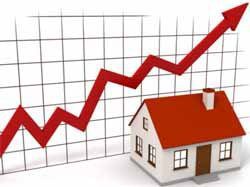Investment
Gallup Poll Finds Increasing Optimism About Housing Market
 A new Gallup survey has found that Americans are improving their opinion about real estate again. The poll, which was conducted among more than 1,000 respondents earlier this month, found that 56% of Americans think the average price of a home in their area will increase, compared to just 30% who felt the same two years ago and 21% in January 2011, which was a low for the survey.
A new Gallup survey has found that Americans are improving their opinion about real estate again. The poll, which was conducted among more than 1,000 respondents earlier this month, found that 56% of Americans think the average price of a home in their area will increase, compared to just 30% who felt the same two years ago and 21% in January 2011, which was a low for the survey.
34% of respondents expect prices to stay at about the same level, while just 10% think prices will fall. While this current optimism is not at pre-recession levels, it is close to the peak 60% who expected price increases at the end of 2006.
Gallup’s Economy and Personal Finance poll has tracked the housing market perceptions of Americans since 2005. After the housing crisis of 2008-2011, Gallup found Americans were more likely to believe in declining value than appreciation in their area. This began to turn around in April 2012, when optimism outweighed pessimism by 33% to 23%. This latest poll has found five times more people believe home values will rise.
The survey did find regional bias, as those in the West are more likely to think prices will go up at 72%. This isn’t surprising, as home prices have risen by double digits in many western states. Only 44% of people in the East expect prices to go up.
74% of respondents also said that it’s a good time to buy a home, while just 24% said it was a bad time. This is one of the most positive readings ever received by the poll.
Americans are still more optimistic about the housing market than they were after the downturn, despite the fact that home values are still lower than they were at the peak of the market in 2006. Rising home prices — particularly in the West — have resulted in a sharp increase in the number of homeowners who say their home is worth more than when they bought it, which means that fewer homeowners are underwater than two years ago.
Several major prosperous cities like San Francisco are now experiencing a booming housing market with bidding wars making a return. Still, except in a few markets, the housing market as a whole is still pulling down the economy.
One remaining problem is a lack of demand. Despite the population growing, there are hundreds of thousands of “missing” households, which is most likely the result of young people choosing or being forced to stay at home longer than in previous generations. Prior to the recession, 27% of 18 to 34-year-olds lived at home with parents, a number that has now climbed to 31%. Employment still remains low.
Single-family home construction remains stagnant, but building activity for rentals has recovered very strongly. Apartment buildings and rowhouses now account for the highest percentage of homebuilding since the 1980s.






